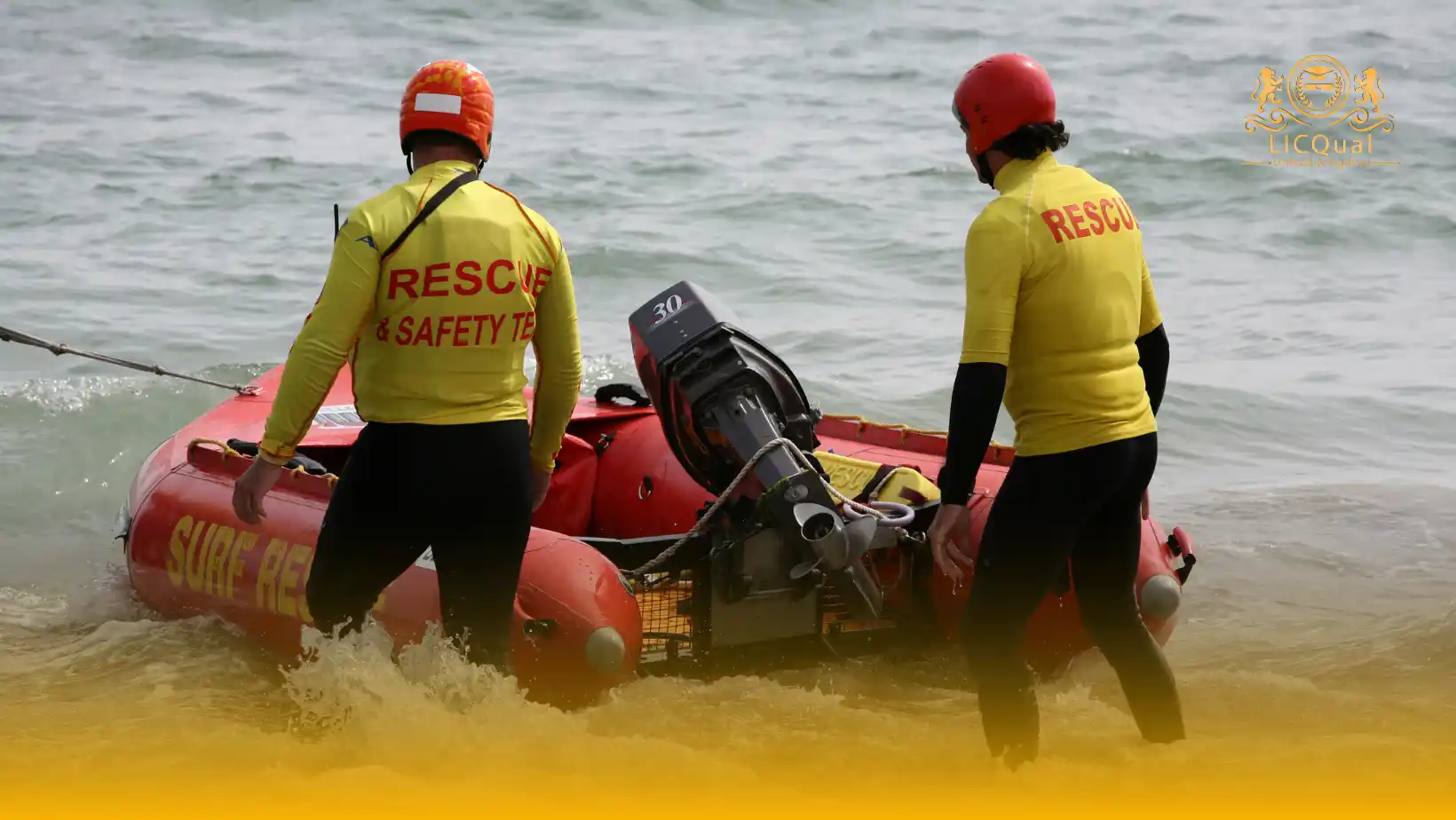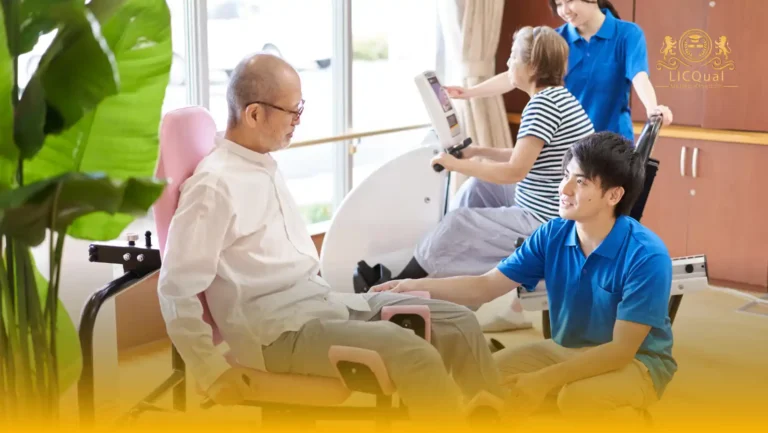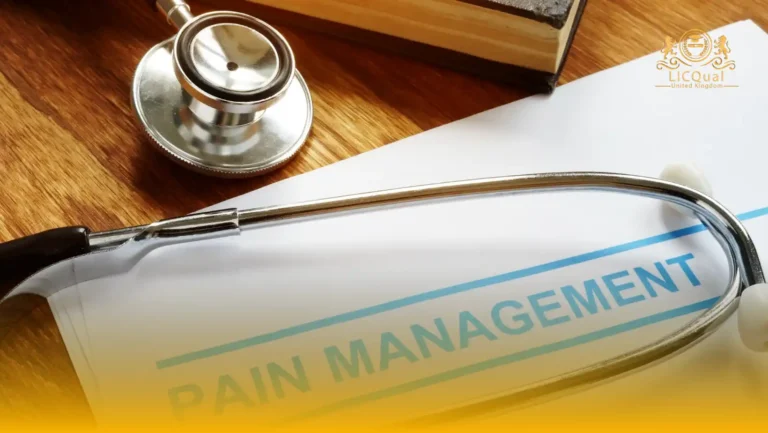The LICQual Level 3 Diploma in Pool-based Aquatic Rescue is a comprehensive qualification designed to equip aquatic professionals with advanced skills and knowledge required to perform effective rescue operations in pool environments. Recognized internationally, this diploma prepares candidates to respond confidently to a wide range of emergency situations, ensuring the safety and well-being of swimmers and pool users.
Ideal for lifeguards, pool supervisors, and aquatic rescue personnel, this course covers critical aspects of pool rescue techniques, risk assessment, first aid, and incident management. Learners will develop practical competencies in identifying hazards, executing safe rescues, providing emergency care, and maintaining communication during emergencies. The course emphasizes the importance of prevention alongside intervention, teaching participants how to implement safety measures that reduce the likelihood of accidents.
Aligned with global aquatic safety standards, the LICQual Level 3 Diploma in Pool-based Aquatic Rescue offers a balanced blend of theoretical knowledge and hands-on practice. Graduates will be prepared to uphold high safety standards, contribute to emergency preparedness plans, and work effectively within rescue teams.
Whether you are pursuing a career in aquatic safety or seeking to enhance your current skills, this qualification serves as a vital step toward professional excellence in pool-based rescue operations. It is suitable for professionals working in public swimming pools, leisure centres, sports facilities, hotels, and any aquatic environment where safety and emergency response are paramount.
Course Overview
Qualification Title
LICQual Level 3 Diploma in Pool-based Aquatic Rescue
Total Units
6
Total Credits
60
GLH
240
Qualification #
LICQ2200621
Qualification Specification
To enroll in the LICQual Level 3 Diploma in Pool-based Aquatic Rescue, applicants must meet the following criteria:
|
Qualification# |
Unit Title |
Credits |
GLH |
|---|---|---|---|
|
LICQ2200621-1 |
Fundamentals of Pool-based Aquatic Rescue |
10 |
40 |
|
LICQ2200621-2 |
Risk Assessment and Hazard Management in Aquatic Facilities |
10 |
40 |
|
LICQ2200621-3 |
Rescue Techniques and Procedures for Pool Emergencies |
10 |
40 |
|
LICQ2200621-4 |
First Aid and Emergency Care in Aquatic Settings |
10 |
40 |
|
LICQ2200621-5 |
Communication, Teamwork, and Incident Management |
10 |
40 |
|
LICQ2200621-6 |
Health, Safety, and Legal Compliance in Aquatic Rescue |
10 |
40 |
By the end of this course, learners will be able to:
1. Fundamentals of Pool-based Aquatic Rescue
By the end of this unit, learners will be able to:
- Explain the roles and responsibilities of aquatic rescue professionals in pool environments.
- Describe key principles and objectives of pool-based aquatic rescue operations.
- Recognize different types of aquatic emergencies and appropriate response strategies.
2. Risk Assessment and Hazard Management in Aquatic Facilities
By the end of this unit, learners will be able to:
- Identify common hazards present in aquatic facilities and swimming pools.
- Conduct thorough risk assessments tailored to pool environments.
- Develop and implement effective hazard control and prevention measures.
3. Rescue Techniques and Procedures for Pool Emergencies
By the end of this unit, learners will be able to:
- Demonstrate practical rescue techniques suitable for various pool emergency scenarios.
- Apply safe and effective procedures for approaching, supporting, and extracting casualties from the water.
- Use rescue equipment correctly during aquatic emergencies.
4. First Aid and Emergency Care in Aquatic Settings
By the end of this unit, learners will be able to:
- Provide immediate first aid treatment for common aquatic-related injuries and medical emergencies.
- Perform cardiopulmonary resuscitation (CPR) and use automated external defibrillators (AED) as appropriate.
- Stabilize casualties and prepare them for handover to emergency medical services.
5. Communication, Teamwork, and Incident Management
By the end of this unit, learners will be able to:
- Demonstrate effective communication skills during rescue operations.
- Coordinate roles and responsibilities within rescue teams to optimize emergency response.
- Manage incidents efficiently, including reporting and documentation procedures.
6. Health, Safety, and Legal Compliance in Aquatic Rescue
By the end of this unit, learners will be able to:
- Understand relevant health and safety legislation applicable to aquatic rescue.
- Apply legal and ethical standards in rescue operations.
- Ensure compliance with organizational policies, industry standards, and regulatory requirements.
The LICQual Level 3 Diploma in Pool-based Aquatic Rescue is ideal for anyone looking to enhance their skills in pool safety, lifesaving, and emergency response. This course is perfect for individuals seeking nationally recognised certification while gaining practical expertise in rescue techniques, risk assessment, and supervision in aquatic environments. Whether you are an aspiring lifeguard, pool operator, or aquatic facility professional, this qualification equips you with the knowledge and confidence to manage critical situations effectively.
Aspiring Lifeguards
- Individuals aiming to start a professional career in lifeguarding
- Candidates seeking LICQual Level 3 recognised certification
- Those wanting to develop advanced rescue and lifesaving skills
- People eager to gain practical experience in emergency response
- Candidates looking to build a strong foundation for aquatic safety careers
- Individuals seeking hands-on training in pool-based rescues
Experienced Pool Operators
- Pool technicians or operators wanting to upgrade their skills
- Professionals seeking advanced knowledge in rescue operations
- Those responsible for maintaining pool safety and supervision
- Facility staff aiming to gain nationally recognised credentials
- Individuals wanting to manage emergencies efficiently
- Professionals looking to enhance operational safety and risk management
Aquatic Centre Managers
- Managers overseeing swimming pools, leisure centres, or community pools
- Individuals responsible for implementing health and safety protocols
- Those aiming to ensure staff and visitor safety in aquatic facilities
- Managers seeking certification to boost professional credibility
- Professionals supervising rescue teams and emergency responses
- Leaders committed to maintaining a secure and structured swimming environment
Swimming Instructors and Coaches
- Instructors transitioning to emergency response or safety roles
- Coaches seeking expertise in lifesaving and pool safety
- Individuals wanting LICQual Level 3 Pool Rescue certification
- Professionals responsible for teaching swimmers safe practices
- Staff aiming to develop leadership and emergency management skills
- Coaches looking to enhance operational standards in aquatic programs
Community and Volunteer Leaders
- Volunteers managing local pools, schools, or swim programs
- Individuals responsible for safety and supervision in community pools
- Leaders implementing rescue protocols and emergency measures
- Those seeking nationally recognised certification for credibility
- Volunteers wanting to improve lifesaving and safety skills
- Community leaders aiming to ensure secure aquatic environments
Career Changers and Lifelong Learners
- Individuals transitioning into careers in pool safety or aquatic management
- Adults seeking Level 3 recognised qualifications for professional growth
- Lifelong learners wanting practical, hands-on training in rescue techniques
- Professionals combining leadership, supervision, and lifesaving skills
- Candidates seeking career advancement in aquatic facilities
- Individuals motivated to develop expertise in pool-based emergency response
Assessment and Verification
All units within this qualification are subject to internal assessment by the approved centre and external verification by LICQual. The qualification follows a criterion-referenced assessment approach, ensuring that learners meet all specified learning outcomes.
To achieve a ‘Pass’ in any unit, learners must provide valid, sufficient, and authentic evidence demonstrating their attainment of all learning outcomes and compliance with the prescribed assessment criteria. The Assessor is responsible for evaluating the evidence and determining whether the learner has successfully met the required standards.
Assessors must maintain a clear and comprehensive audit trail, documenting the basis for their assessment decisions to ensure transparency, consistency, and compliance with quality assurance requirements.







